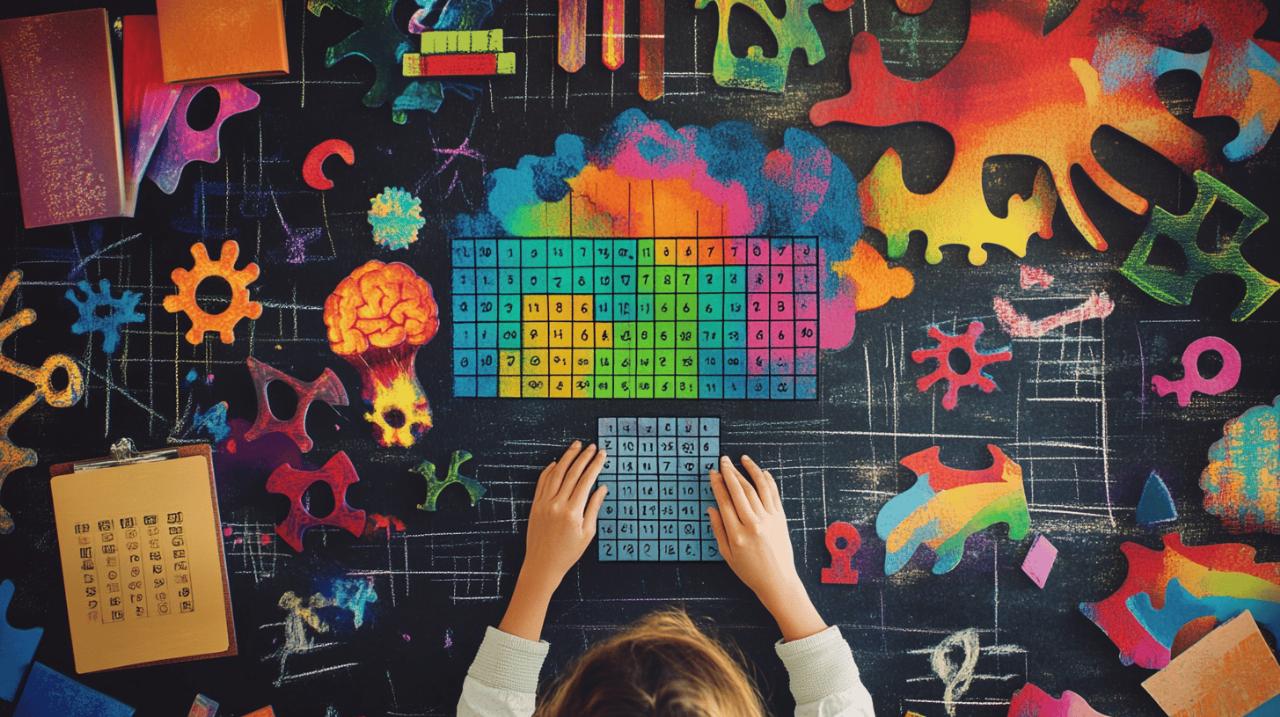Memory Failing? Unlock Sudoku’s Hidden Powers for a Rock-Solid Brain
Brain games have long been touted as a way to keep our minds sharp, especially as we age. Like regular exercise for the body, mental challenges may help maintain cognitive function and potentially slow age-related decline. Among these brain-boosting activities, Sudoku stands out as a particularly effective tool for enhancing memory and overall brain health.
The science behind brain games and memory
When you sit down with a Sudoku puzzle, you're not just passing time—you're giving your brain a comprehensive workout. This seemingly simple number game engages multiple cognitive processes simultaneously, creating a powerful training ground for your mind. Organisations like the Alzheimer's Disease Research Center at the University of Kansas have incorporated similar puzzles into their community outreach and educational resources through programs like MyAllianceforBrainHealth.
How Sudoku engages multiple brain regions
Sudoku activates several areas of your brain at once. When you analyse the grid, your visual cortex processes the information while your prefrontal cortex works on planning and decision-making. Meanwhile, your hippocampus—the memory centre—helps you remember which numbers you've already placed and which patterns you've identified. This multi-regional engagement creates new neural pathways, potentially strengthening your brain's connectivity and resilience.
Research showing cognitive benefits of regular puzzle play
Studies suggest that regular engagement with brain teasers like those featured in BrainBoosters programs can improve memory, attention, and processing speed. These cognitive challenges, which range from numerical puzzles to word games and riddles, provide varied stimulation that keeps the brain adaptable. For instance, completing tasks like deciphering city images from clues or solving equations such as « 195__10=205 » exercises different cognitive skills than traditional memorisation activities, potentially offering more comprehensive brain training.
Getting Started with Sudoku for Brain Health
Beginning your Sudoku journey doesn't require mathematical brilliance—just patience and a willingness to learn. The beauty of this puzzle is that it's accessible to nearly everyone, regardless of age or educational background, making it an ideal component of brain health support programs.
Beginner techniques to ease into the puzzle world
Start with easier puzzles that have more numbers already filled in. Focus on one small section of the grid at a time rather than trying to solve the entire puzzle at once. Look for rows, columns, or boxes where only one number can fit. This technique, often called « scanning, » helps train your brain to recognise patterns and improves your attention to detail. As you progress, you'll develop more sophisticated strategies, much like participants in the interactive challenges offered through MyAlliance for Brain Health programs.
Establishing a daily brain training routine
Consistency is key to seeing cognitive benefits. Set aside 15-20 minutes each day for brain training, ideally at a time when you're mentally alert. Mix Sudoku with other types of puzzles for varied stimulation. You might take inspiration from the weekly BrainBoosters shared by the University of Kansas ADRC, which include diverse memory exercises like completing paragraphs using anagrams or finishing iconic song lyrics. Creating a dedicated space for your mental workout, free from distractions, can help make this practice more effective and enjoyable.
Beyond sudoku: a toolkit for memory enhancement
While Sudoku offers tremendous benefits, a well-rounded approach to brain health incorporates various types of cognitive challenges. The Alzheimer's Disease Research Center recommends diversifying your mental exercises, similar to how you might vary physical workouts for different muscle groups.
Complementary puzzles to round out your mental workout
Consider adding crosswords to strengthen vocabulary and semantic memory, or try logic puzzles that require different reasoning skills than Sudoku. Word games like those featured in brain health educational resources help maintain verbal fluency and recall. Number-based brain teasers, such as the equation challenges in BrainBoosters where participants must determine what sign completes an equation like « 195__10=205 », exercise mathematical reasoning. Even creative activities like the bonus challenge of developing your own puzzles can enhance cognitive flexibility and problem-solving abilities.
Combining physical activity with brain training for maximum benefit
Research suggests that physical exercise enhances the effectiveness of cognitive training. A brisk 30-minute walk before tackling your Sudoku puzzle may improve your performance and boost the formation of new neural connections. The combination of physical movement and mental challenges creates a synergistic effect on brain health. Community outreach programs often emphasise this holistic approach, sometimes offering resources like Weekly Webinars that cover both cognitive and physical aspects of maintaining brain health.
Measuring your progress and brain health gains
Tracking your improvement provides motivation and helps you recognise the real-world benefits of your brain training efforts. Many participants in programs like MyAllianceforBrainHealth report noticeable changes in their daily cognitive function after consistent engagement with interactive challenges.
Tracking improvements in everyday memory tasks
Pay attention to how your daily life changes as you continue with your Sudoku practice. Do you find it easier to remember shopping lists or where you placed your keys? Are you noticing improvements in your ability to focus during conversations or while reading? These real-world applications often provide more meaningful feedback than simply solving puzzles more quickly. Consider keeping a journal to document these changes, noting specific instances where you notice improved recall or attention.
When to expect noticeable changes in cognitive function
Most people begin to notice subtle improvements in their thinking after about three weeks of consistent practice. More significant changes typically emerge after two to three months of regular engagement with brain teasers and memory exercises. However, the rate of improvement varies widely based on factors like age, starting cognitive baseline, consistency of practice, and the variety of challenges you tackle. Programs like BrainBoosters, which share new interactive challenges each week, help maintain novelty and engagement throughout this process, potentially accelerating your cognitive gains.
Real-life success stories: brain transformation through puzzles
Fancy giving your memory a proper boost? Research from leading institutions suggests that engaging with puzzles like Sudoku might be just the ticket for maintaining cognitive sharpness. The University of Kansas Alzheimer's Disease Research Center has been at the forefront of studying how regular mental exercises can strengthen brain function, particularly through their innovative programmes designed to keep minds active and healthy.
Many individuals who struggle with memory lapses have discovered remarkable improvements through consistent puzzle-solving routines. These brain teasers—ranging from numerical challenges like Sudoku to word games and riddles—create new neural pathways that enhance memory retention and cognitive processing. What's particularly striking is how these simple activities can yield tangible results for people across different age groups.
Case studies from the Alzheimer's Disease Research Center
The Alzheimer's Disease Research Center at the University of Kansas has compiled fascinating case studies through their extensive research and community outreach programmes. Their pioneering 'BrainBoosters' initiative, part of the broader MyAllianceforBrainHealth programme, has produced remarkable data on cognitive improvement through structured brain challenges.
These BrainBoosters aren't your garden-variety puzzles—they're carefully crafted cognitive challenges shared weekly with community members. The exercises range widely, asking participants to identify cities from images, use numerical codes to name safari animals, complete paragraphs using anagrams, finish iconic song lyrics, or solve mathematical equations like « 195__10=205 ». This varied approach ensures multiple cognitive pathways are stimulated, maximising brain health benefits.
Participants in these studies have shown measurable improvements in memory function, with many reporting enhanced ability to recall everyday information and perform complex mental tasks. The Centre's research strongly suggests that regular engagement with such diverse brain teasers can help build cognitive resilience, potentially slowing memory decline associated with ageing.
MyAllianceForBrainHealth community members share their journeys
The transformative power of these brain exercises comes to life through the personal stories of MyAllianceForBrainHealth community members. This supportive network brings together individuals committed to improving their cognitive function through regular mental workouts and shared educational resources.
Community members actively participate in the Weekly Webinars organised by the KU ADRC, where they discuss their experiences and learn new memory-enhancing techniques. These gatherings create a sense of camaraderie while providing structured learning opportunities. Notable events include free screenings at the Glenwood Arts Theater and Family Series events that bring together individuals at various stages of their brain health journeys.
One particularly engaging aspect of the community is the bonus challenge where members create their own puzzles to share with others. This creative exercise not only strengthens neural connections but fosters a sense of contribution and purpose. With over a hundred interactive challenges developed since the programme's inception (with the April 10, 2025 Brain Booster marking the 100th day of that year), participants report not just improved memory function but also greater confidence in their cognitive abilities and an enhanced quality of life overall.
For those interested in joining this supportive community and accessing these powerful brain health resources, the KU ADRC can be reached on 913-588-0555 to learn more about their support programmes and interactive challenges.
